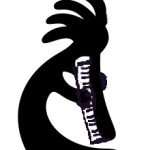Essential qualities of the melodica
- This topic has 4 replies, 2 voices, and was last updated 10 years, 1 month ago by
 Lowboy.
Lowboy.
-
AuthorPosts
-
March 8, 2014 at 4:43 pm #1948
 KevinParticipant
KevinParticipantSo, when someone unfamiliar with the melodica asks you. “Why not just use a harmonica or accordian ?” or similar question what do you tell them?
What do you see as the essential qualities of the melodica that distinguish it as a unique instrument apart from other free reeds (let’s say for a listener to a recording, as a player there is a whole other set of criteria that make playing melodica attractive.)I’m not asking this as a problem I need to solve, just a food for thought discussion.
March 8, 2014 at 5:22 pm #1949 LowboyParticipant
LowboyParticipantYou know Kevin, this is a good question.
The accordion and harp are very expressive instruments, perhaps more so than the melodica in it current state of use. [What people do with a blues harp is out of this world, and the accordion has huge tonal variation and the ability to play big polyphonic chords and bass accompaniment.] How can the melodica compete to capture listeners? It is not easy.
I would have to say there is a sound difference. That counts, however, the difference is not going to steal the show. Then there is the simplicity of primarily playing single notes and intervals. Less can be more in the right setting. In a live performance, the melodica has a unique look and rarity that make it somewhat of a novelty and attractive (its fresh and new to many people).
If I am just listening–and not watching a show–I think the melodica must compete by accentuating its unique sound (especially if EQed in a professional way) and by playing a unique role in songs (single note melodies and arrangements that fit the song perfect). Of course harp players and accordionists are also fitting their instruments into songs perfectly too.
A much as I EQ my melodicas, I also enjoy playing them acoustically or without EQ.
Augustus Pablo’s sound is somehow pretty captivating. He has good bands behind him, and that helps, and the melodica fits right in to the dub and reggae groove and instrumentation. Plus his melodies are pretty unique because of his musical influences and perhaps other things that were influencing his playing if you know what I mean. So Augustus has done it. He capitalized on the unique sound of the melodica and plays some simple but captivating melodies. In spite of some sloppy playing, mistakes, and weak sound projection, I still like to listen to him play.
Lowboy
March 9, 2014 at 9:54 pm #1952 KevinParticipant
KevinParticipantI thought of another way to think about it.
If you were trying to get a record producer to hire you for a session and he said “My keyboard guy doubles on accordion and one of the guitar players dabbles on harmonica, Why would I need you?”
Perhaps an even more concrete example of why the melodica?March 9, 2014 at 10:37 pm #1954 LowboyParticipant
LowboyParticipantI think the only thing that would get you that gig would be exceptional playing skills and a playing style that was perfectly matched to the needs of the song.
Melodica players are the underdog in that situation, but we can still win.
Lowboy
March 10, 2014 at 12:51 pm #1957 LowboyParticipant
LowboyParticipantIf you look up melodica on Wikipedia, there are a couple of entries; one of which lists about 80 pop and rock songs in which the melodica was used. Songs from jazz and classical genres are there too.
One question is, can you play the melodica all night without burning people out?
After thinking about your follow-up question Kevin, and knowing a bit about composing and producing, I would say the draw to the melodica would have to be its unique sound. It is different than the accordion and harmonica. So if the melodica sound and vibe fit a song better, then the melodica would get the call.
Lowboy
-
AuthorPosts
- You must be logged in to reply to this topic.
